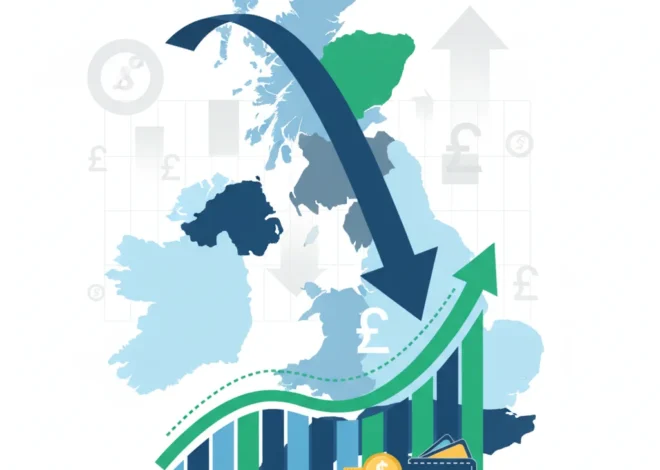
Frozen Assets, Fiery Debate: Unpacking the €140 Billion Standoff Over Russia’s Wealth
In the intricate world of global finance, where capital flows across borders with digital speed, a new and profound question has emerged—one that pits geopolitical urgency against the foundational principles of economic stability. At the heart of this debate lies a staggering sum: over €260 billion in Russian sovereign assets, frozen by Western nations following the invasion of Ukraine. Now, a G7 proposal to leverage these funds is forcing a high-stakes confrontation, with the small nation of Belgium at its epicenter.
The plan is as audacious as it is controversial: to engineer a massive loan for Ukraine, potentially reaching €140 billion, collateralized not by the assets themselves, but by the future profits they generate. On the surface, it’s an elegant solution to fund Ukraine’s resistance and reconstruction. But dig deeper, and you uncover a complex web of legal, financial, and economic risks that could send shockwaves through the entire global financial system. This isn’t just a political maneuver; it’s a move that could redefine the rules of international finance and investing for decades to come.
The Belgian Bottleneck: Why One Country Holds the Key
To understand the current impasse, one must look to Brussels—not just as the political capital of the European Union, but as a critical hub in the global banking infrastructure. The vast majority of Russia’s frozen central bank assets, around €191 billion, are held by Euroclear, a Brussels-based financial services giant that specializes in the settlement of securities transactions.
This geographic concentration places Belgium in an extraordinarily powerful, yet deeply uncomfortable, position. The profits generated from these immobilized assets—interest and returns from reinvested funds—are accumulating within its jurisdiction. The G7 sees these windfall profits as the perfect fuel for a Ukrainian aid package. However, Belgian Prime Minister Bart De Wever is sounding the alarm, insisting that his country cannot and should not bear the associated risks alone.
De Wever’s concerns are twofold, and they strike at the core of financial prudence:
- Legal Risk: The concept of using profits from another nation’s sovereign assets, even when frozen, is legally untested. Russia has already vowed to retaliate with decades of litigation. If courts rule against the seizure of these profits, who is liable? Belgium and, by extension, Euroclear would be on the front line of a legal firestorm, facing potentially colossal damages.
- Financial Risk: The proposed loan is a long-term instrument, but the profits it depends on are not guaranteed. What happens if interest rates fall, reducing the income stream? What if the underlying assets are required to be returned to Russia as part of a future peace settlement? If the profits dry up before the loan is repaid, who covers the shortfall? Belgium is demanding that other G7 nations provide explicit guarantees to cover these contingencies, effectively asking them to co-sign this unprecedented financial instrument.
This standoff transforms a political objective into a complex problem of risk allocation—a fundamental concept in both institutional investing and the broader economy.
The Ripple Effect: Precedent, Trust, and the Global Economy
The decision made in the coming weeks will extend far beyond Belgium’s borders. The international financial system is built on a bedrock of trust and established legal norms, chief among them the principle of sovereign immunity. This doctrine generally protects a state’s assets from being seized by another state. While sanctions have allowed for the freezing of assets, using their profits as collateral for a loan ventures into uncharted territory.
Financial professionals and central bankers worldwide are watching with bated breath. If the West proceeds, it could set a dangerous precedent. Nations outside the Western alliance, such as China, Saudi Arabia, and others with vast foreign reserves, may begin to question the safety of holding their wealth in Euros or Dollars. The fear is a gradual but significant shift of capital away from Western financial institutions, which could have long-term consequences for the stability of the Euro and the US Dollar as the world’s primary reserve currencies. Such a shift would impact everything from international trading to the stability of the global stock market.
This is where the principles of economics clash with the realities of geopolitics. A move intended to punish a single aggressor could inadvertently erode the trust that underpins the very system that gives Western sanctions their power.
Could Financial Technology Offer a Path Forward?
Interestingly, this crisis highlights the limitations of our current financial infrastructure and opens a discussion about the role of emerging technologies. The reliance on a single intermediary like Euroclear creates a concentrated point of failure and risk. This has led some innovators in the financial technology space to ask whether new models could offer better solutions for managing such complex, politically sensitive assets in the future.
Imagine a scenario where seized assets are managed on a transparent, distributed


